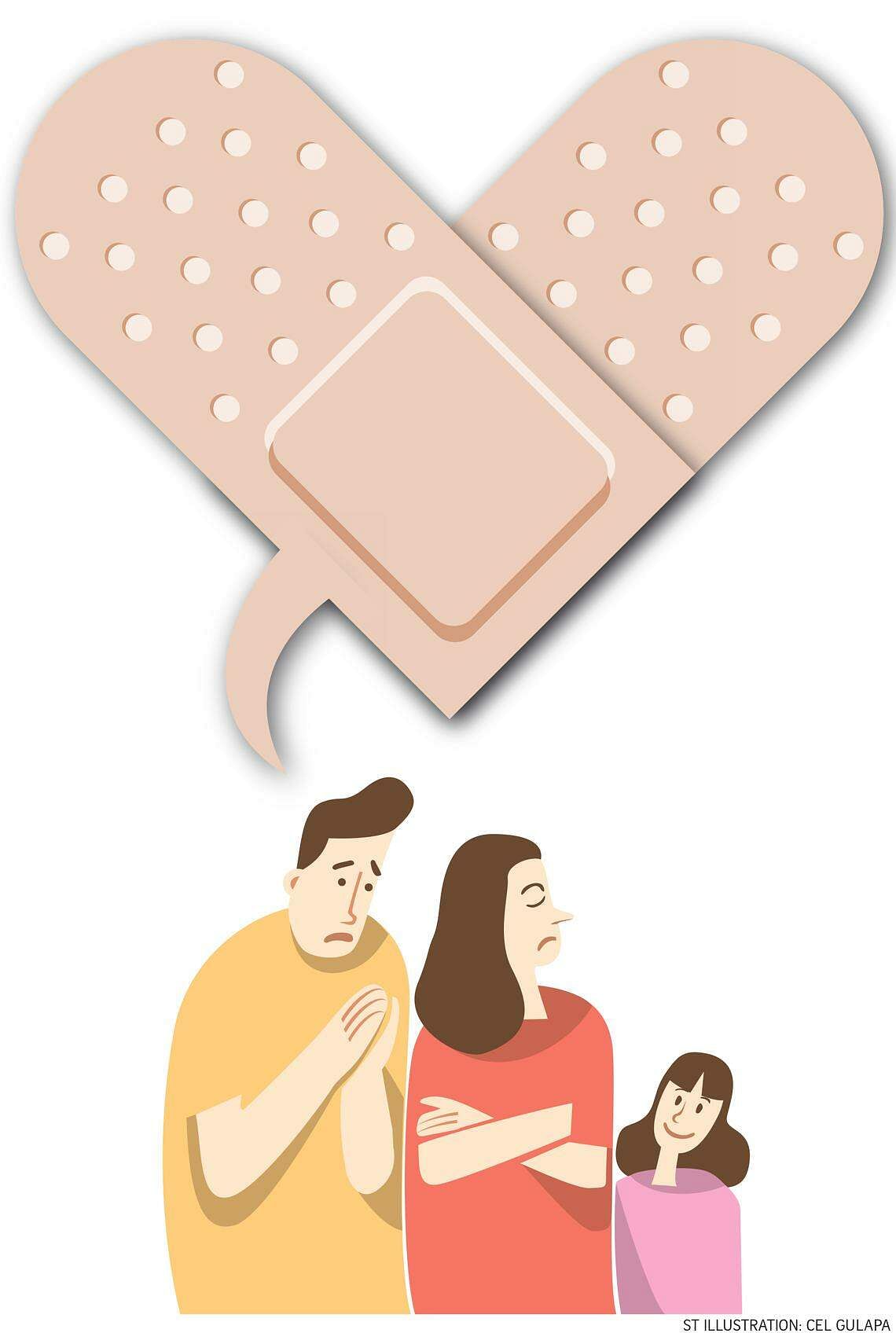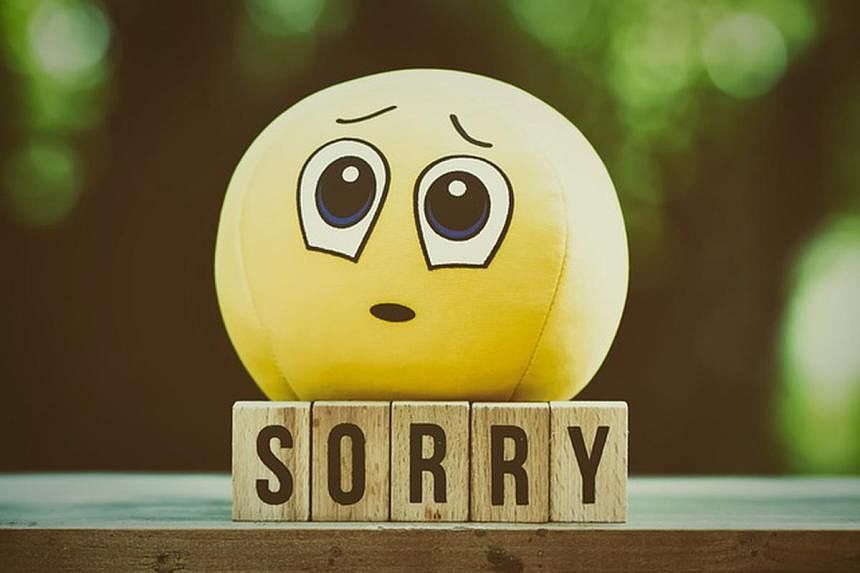SINGAPORE – I learnt early in my marriage to apologise to my wife and children when I’ve done something wrong. It gives me a sense of release when I make peace with them. I can then start over and learn from it.
I know it is not easy to admit you have made a mistake. Grown men, and heads of household, don’t say sorry or shed tears, so I have heard.
As parents, our kids look up to us as role models. We are supposed to know better and act better. We think we may lose credibility when we apologise, because any admission of guilt is a sign of giving in. Parents want to avoid looking weak in front of their kids.
But to err is human and to apologise is refreshing.
Our children get to witness how we mend relationships by taking a bite of humble pie. They learn first-hand how an apology deepens and strengthens bonds.
Having said that, growing up, I seldom heard my late father say sorry to us. Maybe he felt it was enough that he put food on the table and provided a roof over our heads.
My parents would be quarrelling one day, and the next day, they would be back to their normal routine, as if nothing had happened.
Whether they mended fences with an apology or just let sleeping dogs lie, my siblings and I were none the wiser. I suspect it was the latter.
Life went on as usual for their four children. We grew up not knowing how the peace was kept. Looking back, I can’t tell whether sorry was the hardest word. It was just seldom heard.
Towards the end of my father’s life, the word “sorry” passed his lips more easily. He sat me down one night and shared about his life. He admitted that things could have been done differently, and sheepishly apologised a few times.
I could sense that he felt a release and closure. We drew closer after that.
When it comes to apologising, I have found that the most effective way is to come clean with it. Keep it simple, get to the point.
Don’t qualify an apology by saying sorry and leaving it hanging there with a “but”. Maybe this sounds familiar: “I’m sorry, but I was okay until you said that,” or “I’m sorry, but it was all in good fun.”
That “but” ruins an apology and all the good intentions that come with it. The rule of thumb is: When in doubt, leave it out.
Apologies with a “but” come off as defensive. It gives the impression that we still have scores to settle.

When we qualify an apology, we risk shifting the blame to the one hurt by what we did. We send mixed signals to the other party, accusing him or her of being petty, or lacking understanding. That is when an apology has been weaponised.
I have also learnt that we have to be actually sorry for what we did. This may seem obvious, but I often catch myself apologising because of the other person’s response to what I did.
My wife, Anna, was the recipient of such a half-baked apology. I said sorry for causing her to be angry, but stopped short of apologising for what I did in the first place.
Lastly, to apologise is to take responsibility. It is owning up to one’s mistake, with the assurance that it will not happen again. It is followed by the resolve to make amends.
A sincere apology brings people closer together. It heals wounds and makes the world a kinder place. To apologise well is to learn the art of connecting with people.
• Michael Han is a father of three and managing partner of a legal firm.


